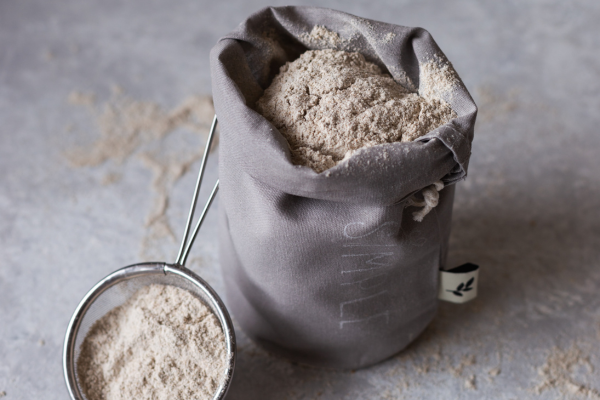
Organic wheat flour is a versatile and nutritious ingredient that can elevate your cooking and baking to the next level. Whether you are making bread, pastries, or savory dishes, using organic wheat flour can enhance the flavor, texture, and nutritional value of your creations. In this article, we will explore the benefits of organic wheat flour and provide tips on how to make the most of this powerful ingredient in your kitchen.
The Benefits of Organic Wheat Flour
Nutritional Value
- Organic wheat flour is rich in essential nutrients such as fiber, protein, vitamins, and minerals.
- It is a healthier alternative to conventional wheat flour, as it is free from harmful pesticides and chemicals.
- Organic wheat flour retains more of its nutrients during the milling process, making it a more wholesome choice.
Superior Flavor and Texture
- Organic wheat flour has a richer, nuttier flavor compared to conventional flour.
- It provides a better texture to baked goods, resulting in softer bread, flakier pastries, and more tender cakes.
- The superior quality of organic wheat flour can take your cooking and baking to the next level.
Environmental Benefits
- Organic wheat flour is produced using sustainable farming practices that promote soil health and biodiversity.
- It helps reduce the impact of agriculture on the environment by avoiding synthetic pesticides and fertilizers.
- Choosing organic wheat flour supports farmers who prioritize the well-being of the land and the health of their communities.
How to Use Organic Wheat Flour in Your Kitchen
Baking Bread
- Organic wheat flour is perfect for making homemade bread with a rich, complex flavor.
- Use a combination of organic whole wheat flour and organic all-purpose flour for the best texture and flavor.
- Experiment with different types of organic wheat flour, such as spelt or einkorn, for unique and delicious breads.
Baking Pastries
- Make flaky, tender pastries using organic wheat flour for a superior taste and texture.
- Combine organic wheat flour with organic butter and cold water for the perfect pastry dough.
- Try using organic pastry flour for delicate and light pastries that will impress your family and friends.
Cooking Savory Dishes
- Use organic wheat flour to thicken sauces, soups, and stews for a rich and velvety texture.
- Dredge meats and vegetables in organic wheat flour before cooking for a crispy and flavorful crust.
- Make homemade pasta using organic wheat flour for a delicious and satisfying meal.
Tips for Storing Organic Wheat Flour
Proper Storage
- Store organic wheat flour in an airtight container in a cool, dark place to maintain its freshness and flavor.
- Avoid storing organic wheat flour near strong-smelling foods, as it can absorb odors easily.
- Check the expiration date on the package and use the flour within a reasonable time frame for the best results.
Freezing Organic Wheat Flour
- If you want to extend the shelf life of organic wheat flour, consider freezing it in a resealable bag or container.
- Allow the flour to come to room temperature before using it in your recipes for the best results.
- Properly sealed and stored organic wheat flour can last for several months in the freezer without compromising its quality.
Using Fresh Flour
- For the best results, try to use fresh organic wheat flour in your recipes rather than flour that has been sitting in your pantry for a long time.
- Fresh flour will have a better flavor and texture, resulting in more delicious and satisfying dishes.
- Consider buying organic wheat flour in smaller quantities to ensure that you always have a fresh supply on hand.
